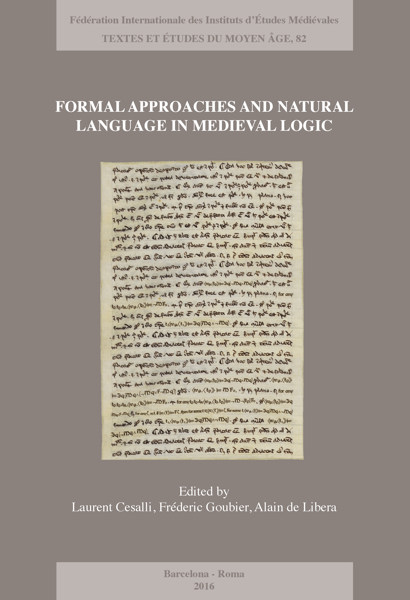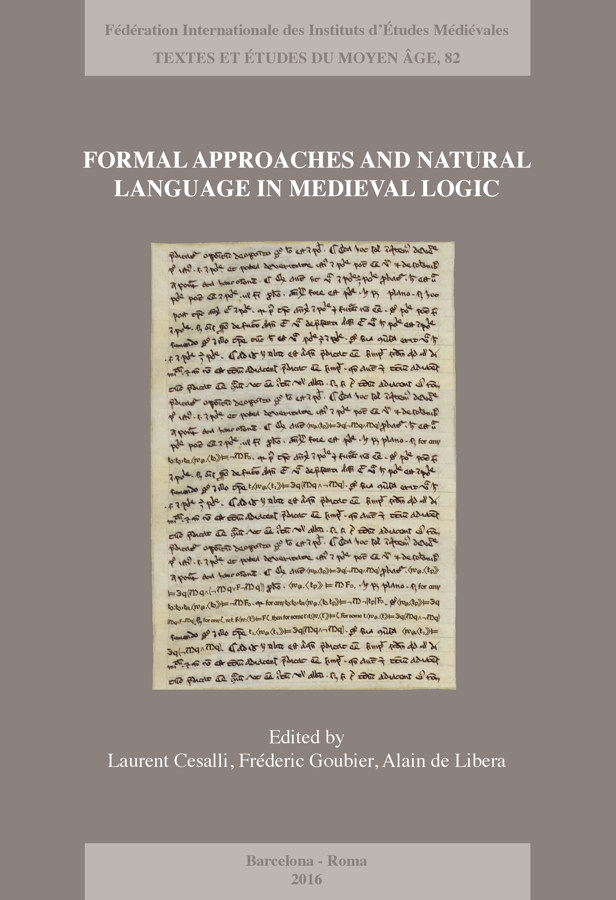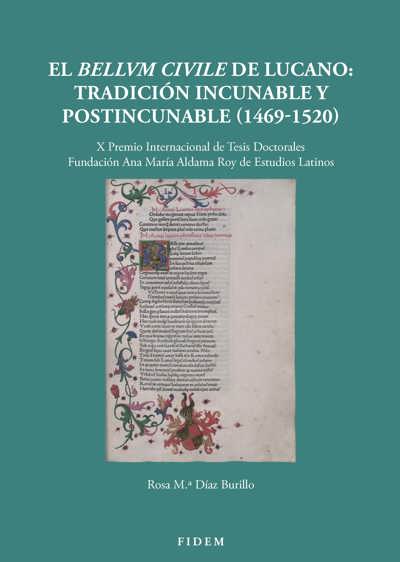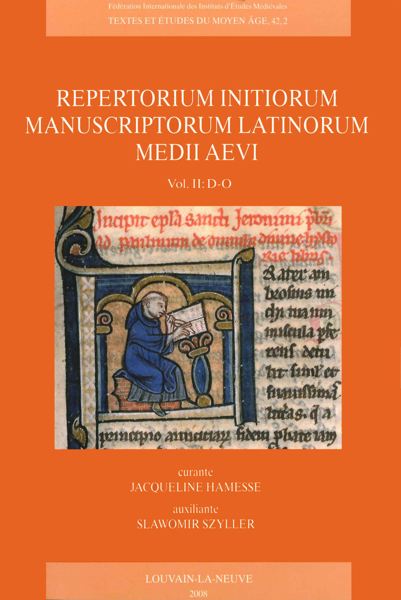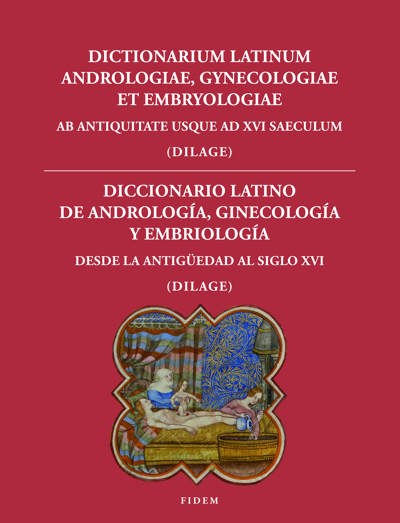
Formal Approaches and Natural Language in Medieval Logic
Proceedings of the XIXth European Symposium of Medieval Logic and Semantics, Geneva, 12-16 June 2012
Laurent Cesalli, Frédéric Goubier, Alain De Libera (eds)
- Pages: 538 p.
- Size:165 x 240 mm
- Language(s):English, French
- Publication Year:2017
- € 69,00 EXCL. VAT RETAIL PRICE
- ISBN: 978-2-503-56735-8
- Paperback
- Available
- € 69,00 EXCL. VAT RETAIL PRICE
- ISBN: 978-2-503-56736-5
- E-book
- Available
This book considers the issue of the formal character of medieval logic and aims at clarifying in what sense the language it is operating on (and in) is natural or not.
Laurent Cesalli est professeur de philosophie médiévale à l'Université de Genève.
Frédéric Goubier est collaborateur scientifique à l'Université de Genève.
Alain de Libera est professeur d'histoire de la philosophie médiévale au Collège de France.
The late medieval period is widely acknowledged as one of the most salient moments of the history of logic and semantics. It not only considered logic as a sine qua non condition for scientific knowledge, it also begot highly sophisticated theories about both argumentation and language. The last fifty years of increasingly intense research have brought about an ever more detailed knowledge of these theories. And yet, the questions as to what kind of logic is medieval logic, whether and to what extent it corresponds to our conception of logic, and, even, what the nature of its object was, remain challenging. That it has a formal character is widely accepted; and its semantic components display remarkable affinities with contemporary ones. But is it formal in the way modern logic is – or believes it is? Medieval logic does not really make recourse to symbolisms, after all, and the fact that the idea of formal validity might have been born in the twelfth century does not mean that developing formal approaches was an aim of medieval logicians. And what is its semantics a semantics of? Medieval logicians use Latin to deal with Latin constructions, but do these constructions belong to natural language or are they regimented to the point of forming some sort of ideal language?
The twenty-five papers gathered in this volume deal with these issues, thus allowing to reassess the broader questions of the formal character and formalising ambitions of medieval logic, as well as that of the natural character of the language in (and on) which it operated: in other words, they address the question of the nature, object and purpose of medieval logic.
I. FORMAL LOGIC: HYLOMORPHISM AND FORMAL VALIDITY
IWAKUMA yukio On Medium in the Early Twelfth Century
John MACFARLANE Abelard’s Argument for Formality
Christopher John MARTIN Abaelard on Logical Truth
Julia LOMBARDI Le caractere formel de la logique en comme ars
Julie BRUMBERG-CHAUMONT La forme syllogistique et le problème des syllogismes sophistiques selon Robert Kilwardby
Catarina DUTILH NOVAES The Form of a Syllogism: Mood or Figure?
Paul THOM Analysing Arguments in the Thirteenth and Fourteenth Centuries
Joke SPRUYT John Wyclif on the Formal Nature of Inference
Riccardo STROBINO What is Form All About? A 14th-Century Discussion of Logical Consequence
II. FORMAL SEMANTICS: ISSUES AND STRATEGIES
Sten EBBESEN Habitudines locales
Ana Maria MORA-MARQUEZ Aristotle’s Fallacy of Equivocation and its 13th Century Reception
Leone GAZZIERO «Utrum figura dictionis sit fallacia in dictione. Et quod non videtur». A Taxonomic Puzzle or How Medieval Logicians Came to Account for an Odd Question by an Impossible Answer
Simo KNUUTTILA Scotus’s Formal Semantics of Modal Notions
Harald BERGER «Sortes differt ab omni homine». A Tension in Albert of Saxony’s Concept of Merely Confused Supposition
Luca SBORDONE Semantics and Pragmatics of Reference. Elements of a Contemporary Theory of Supposition
Paloma PÉREZ-ILZARBE Jerónimo Pardo on the formality of the expository syllogism
III. NATURAL OR IDEAL LANGUAGE?
Allan BÄCK Aristotelian Protocol Languages
Christoph KANN, Raina KIRCHHOFF Formal Elements in Natural Language. Sherwood’s Syncategoremata Revisited
Claude PANACCIO Ockham on Nominal Definitions, Synonymy and Mental Language
Ernesto PERINI-SANTOS The Underdetermination of Mental Language in William of Ockham and John Buridan
Joël BIARD Jean Buridan : une philosophie du langage ordinaire ?
Stephen READ Non-normal Propositions in Buridan’s Logic
Sara L. UCKELMAN Beyond Formality: The Role of the Dialectical Context in Medieval Logic
E. Jennifer ASHWORTH How Natural is Natural Language? Some Post-medieval discussions
Paolo NATALI Appendix to an impossible cover
Index auctorum antiquorum et mediaevalium
Index auctorum recentiorum
Index rerum
Index codicum
